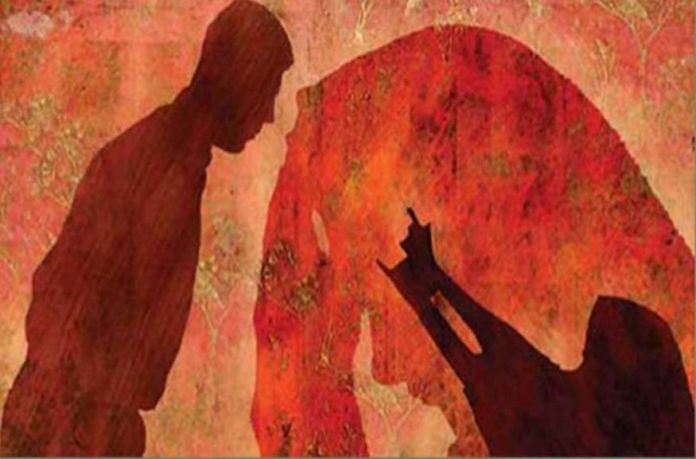Disclaimer: The Eqbal Ahmad Centre for Public Education (EACPE) encourages critical and independent thinking and believes in a free expression of one’s opinion. However, the views expressed in contributed articles are solely those of their respective authors and do not necessarily reflect the position or policy of the EACPE.
Every culture is amalgamation of certain norms, values, customs and taboos. They all collectively represent the mindset of the local population and their position in social strata. It’s just normal that people take pride in their culture and wish to support and promote their customs and traditions. At the same time, in every culture there might be such customs and traditions which are being practiced but not promoted and supported by the local population. They do practice them but behind the walls and keep them confined to their families or kinship.
Vani or swara is a cultural custom practiced in Pakistan’s rural areas, especially in Punjab and Khyber Pakhtunkhwa. Vani is a Pashto word derived from “Vanay” which stands for blood. The local media calls it a social issue, the international community calls it violation of human rights and the practicing people consider it a solution for resolving the enmity between two groups.
This custom is practiced to settle crimes such as murder, or zina (fornication or adultery), or settling debts, or for compensation of abduction or kidnapping. Such disputes are resolved by giving a minor girl in the marriage to a man of the opposite group. Vani is said to be an old age tradition. This tradition started almost 400 years ago when two Pashtun tribes of Mianwali fought a bloody war. During the war hundreds of people were killed. At that time Nawab of Tank tried to solve the problem. He called the Jirga (local court) which decided that girls are given as Qisas. Later on this decision became a custom which passed over generation to generation.
This tradition is practiced in different areas of Sindh, Punjab and KPK. These marriages are known as Vani, Sakh, Sawara, Sharam, Khoon Baha, and Sang Chatti with the difference of languages in different areas. The age of girls who are being given in marriage to the opposite party ranges from 4 to 14 years and the men who receive them are of 25 to 60 years.
This tradition is deep rooted in the Pashtoon culture and in Pashto it is known as Swara. Even in today’s modern time this custom is being practiced in rural KPK and in all tribal areas. This old tradition reminds us of the time when girls were not considered as human beings. This custom reminds us that they are not considered human beings even in today’s age. In the modern time of courts and law, human rights organizations, NGOs and influential media why this humiliating practice is still common in areas of Pakistan is a painful question. The local elder people speak in the favor of such customs and argue that if the whole family life can be saved by sacrificing one girl, then there in no harm in it. This custom is so deeply rooted that even the victim girls have to pose themselves doing such a sacrifice willingly.
According to this custom, any girl can be accepted but in practice, there are some preferred girls for compensation purpose. These are sisters, daughters, daughters of brother etc. of the guilty party. On the other hand, the male member on the effected side male can be brother, son, father etc. Mostly such a person is chosen who is older, abnormal or the one with whom marriage is not possible.
The practice of Vani violates the constitution of the country. Article 9 of the Constitution guarantees that no person shall be deprived of life or liberty. It also violates Article 4 of the Constitution that guarantees that every citizen has full right to enjoy the protection of the law. On the contrary, Vani practice blatantly violates it.
Governments claim to take initiatives against Vani, as well as Human Rights Commission of Pakistan and different NGOs are working to eradicate it. The Supreme Court of Pakistan has also taken action against forced marriages in different areas of Sindh, Punjab and KPK. National Judicial Policy Making Committee has called Vani an un-Islamic practice which must be punished. In 2004, Pervez Musharraf, Pakistan’s former president, passed a law against Vani during visit by the US president, George Bush. Unfortunately, it didn’t implement due to limited influence in rural areas and strong cultural roots of such customs. Also, feudalism is so strong there that only 15 Vani cases have been tried under the new law in Mianwali.
It is the duty of local people, especially educated ones to step forward and raise awareness at the grass roots level. It is needed that the women be given equal rights and status as that of the men. For this purpose, it is important that women education be promoted. Moreover, agents of social change, like education, economy, development, and media etc. should be allowed to access rural areas. Last but not the least, the government should take strict measures to eradicate the local Jirga or Punchaits and strengthen the rule of law there.
Let’s perform our individual and collective duty for eradicating social issues from our society one by one.
 The writer is the student of Pakistan Studies at Government College Mansehra. He tweets as @abidhashnagar and can be reached at abidalimn121@gmail.com
The writer is the student of Pakistan Studies at Government College Mansehra. He tweets as @abidhashnagar and can be reached at abidalimn121@gmail.com
 The writer is the student of Pakistan Studies at Government College Mansehra. He tweets as @abidhashnagar and can be reached at abidalimn121@gmail.com
The writer is the student of Pakistan Studies at Government College Mansehra. He tweets as @abidhashnagar and can be reached at abidalimn121@gmail.com


Very informative! I’ve presented points from this article which really created preliminary awareness among my classmates.
Very informative! I’ve presented points from this article which really created preliminary awareness among my classmates.There are certain customs and traditions which have to be eradictaed for the betterment of humanity.
[…] Women, and Our Society should be discussed.Are you totally against the heinous traditions of Karokari, Swara, and Wani that found in your surroundings? Most of the people are totally against the slogan( Mera jism, Meri […]
All points are vivdly written ;understandable and comprehensive.
I would like to add something about the history of Sawra.
This vicious custom was not as filty as now ;in past,the woman was a sign of peace. When ever two parties had a fight and they had to cease it ,a woman would come in the battlefield;the mere sight of a woman was enough to cease the fire or battle. The giving of woman was imbeded later due to ceratin reasons. But the intial idea behind this obnoxious practice was most humane one;it was tainted by later generations for their own whimsical endeavors.